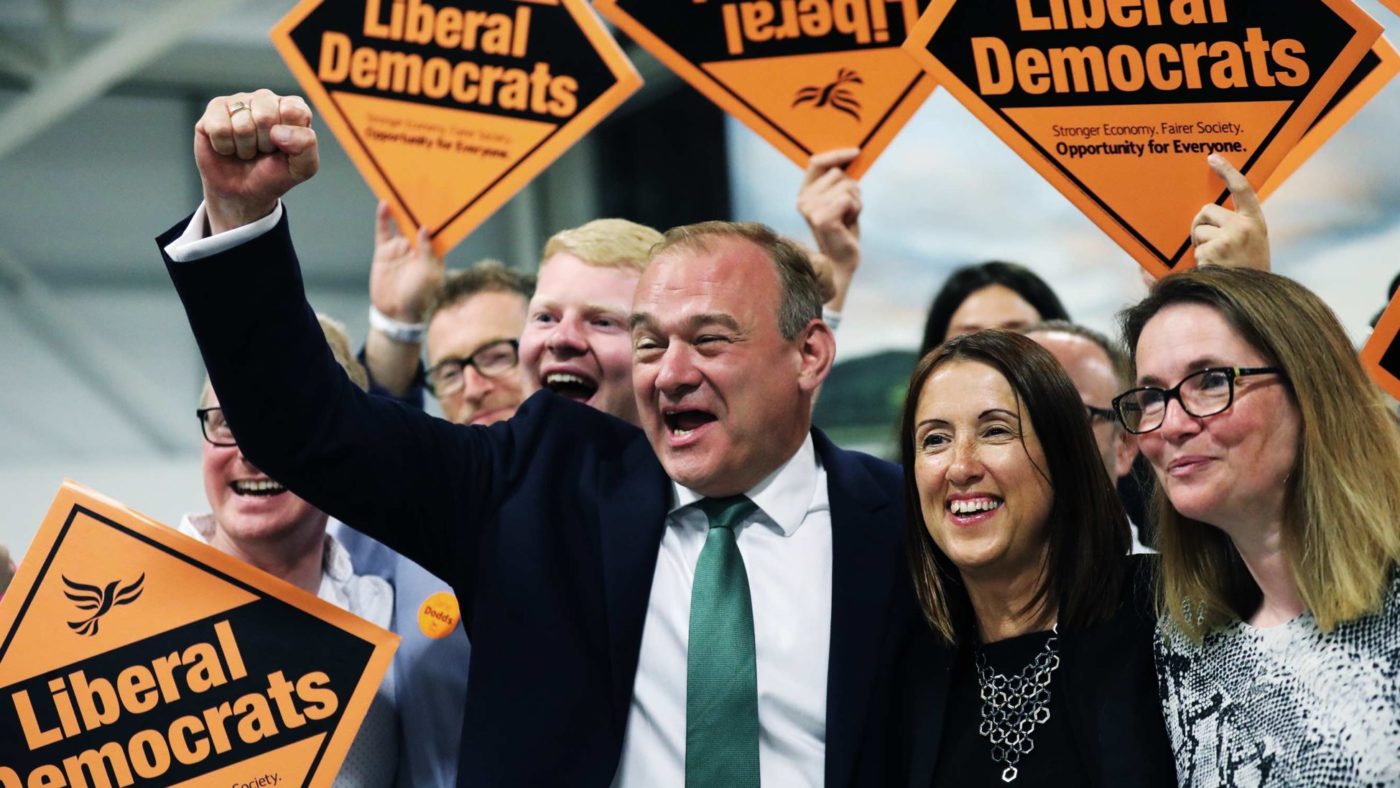What are we to read into this week’s by-election in Brecon and Radnorshire?
Depending on who you ask, it was variously a triumph for the Lib Dems, a disaster for Labour or a better than expected night for the Tories – especially given that their candidate’s conviction for expenses fraud was what triggered the contest in the first place.
While we can all impose our prejudices on the result, the one indisputable fact is that it hastens the path to another general election by reducing the Conservatives’ working majority to a single MP.
While Jo Swinson and the Liberal Democrats are understandably cock-a-hoop, there are reasons to be cheerful for Team Johnson too.
Chief among them is the calamitous performance of Jeremy Corbyn’s Labour Party, who got just 5%. Nor is this a one-off – what should be the main Opposition party has lost vote share in each of the last eight by-elections.
What’s more, Corbyn’s incompetence is now so taken-for-granted that his complete lack of response to Boris Johnson’s elevation has scarcely remarked been upon.
The lifelong Marxist is nothing if not intellectually flat-footed. And in this case he seems rooted to the spot marked by Labour’s surprisingly good performance at the 2017 snap election.
Back then, in an election almost no one believed was really about Brexit, Corbyn was on firm ground railing against austerity and promising to tax the top few per cent to deliver boundless goodies for “the many”.
Now, facing the prospect of an election that will most decidedly be about Brexit, he’s stuck. Where once “constructive ambiguity” allowed the party to be all things to all voters, now it look increasingly like a party that is nothing to anyone but its core vote.
Still, the Tories cannot rest on their laurels. Though the indications are that the pivot to preparing for No Deal – backed up with £2.1bn of extra funding announced this week – is starting to squeeze Brexit Party support, the Brecon and Radnorshire result showed the scale of the challenge ahead.
Of course one should not extrapolate too heavily from by-election results. They tend towards low turnouts (though here it was nearly 60%) and can hinge on local issues.
Nonetheless, if Nigel Farage’s party were to replicate that 10% vote share in other Brecon-style seats, the Tories would have a serious problem winning a majority, while the Lib Dems can look forward to perhaps tripling their tally of 13 MPs.
One should also remember that Brexit Party supporters are not all disgruntled Tories who will naturally migrate back to the party now Johnson is in charge. Many were former Labour voters or ‘none of the above’ protest voters, for whom the prospect of voting Conservative remains unpalatable.
The irony of this predicament is that in many seats a vote for the Brexit Party would improve the chances of electing an MP who wants to reverse Brexit entirely.
There is widespread consensus in Westminster that the Conservatives need to deliver Brexit – the new Government’s overwhelming priority – before calling any new election. But if one does happen, don’t be surprised to see endless Tory ads with a simple message: ‘Vote Brexit, Get Remain’.
CapX depends on the generosity of its readers. If you value what we do, please consider making a donation.


